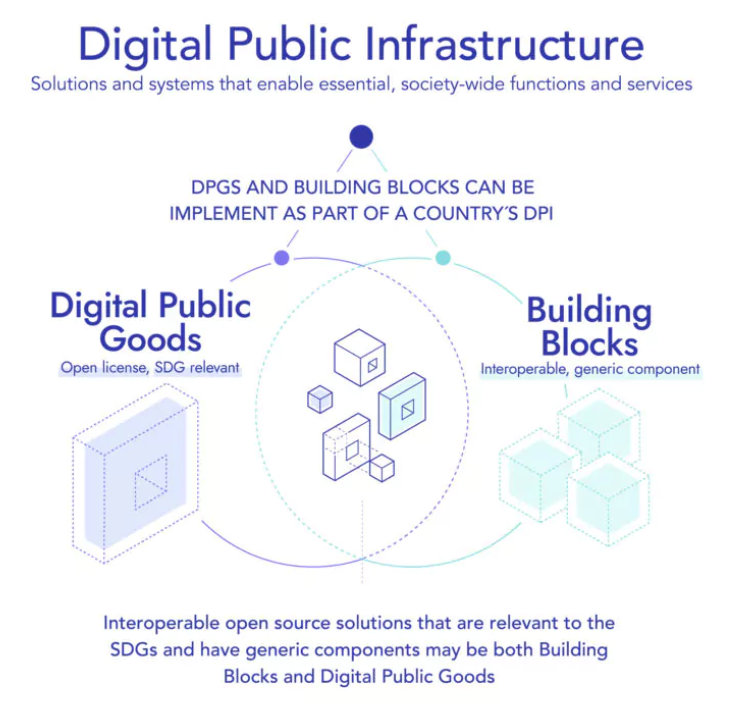9 September 2024 : Indian Express Editorial Analysis
1. Five sutras for digital infrastructure
(Source: Indian Express; Section: The Ideas Page; Page: 11)
| Topic: GS2– Governance |
| Context: |
| The article highlights India’s achievement of over 80% financial inclusion within six years, driven by digital public infrastructure (DPI), and its global leadership in the area. |
What is a DPI?

- DPI refers to blocks or platforms such as digital identification, payment infrastructure and data exchange solutions that help countries deliver essential services to their people, empowering citizens and improving lives by enabling digital inclusion.
India’s Financial Inclusion Success
- India’s remarkable achievement of financial inclusion, reaching over 80% of its population within six years, is a global milestone, particularly for the Global South.
- This feat demonstrates how effectively India has scaled digital and financial inclusion for over a billion people.
- As a testament to its success, digital public infrastructure (DPI) took center stage at the 2023 G20 summit in New Delhi, where India’s leadership highlighted its progress.
- A key takeaway was India’s commitment to sharing its strategy for digital infrastructure with the world, particularly through a report released by the G20 task force.
- India now carries the responsibility to help other nations achieve digital sovereignty, financial inclusion, and self-reliance.
The Rise of Digital Public Infrastructure (DPI)
- The burgeoning digital landscape in India is filled with diverse players, including private enterprises, government bodies, non-profit organizations, and think tanks, all working together to develop DPI solutions.
- However, as the market expands, the challenge lies in distinguishing between authentic, reliable DPIs and subpar offerings. The core question now is what separates a “good DPI” from a “bad DPI.”
- A good DPI harmonizes technology with societal needs, ensuring security, scalability, and inclusivity, while remaining faithful to authenticity and reliability.
The Role of Citizen Stack
- Amidst the growing complexity of digital public infrastructure, Citizen Stack stands out as a trusted ecosystem derived from the proven success of India Stack.
- India Stack, an extensive digital infrastructure platform, has already demonstrated its capability by serving over a billion citizens securely and efficiently.
- The uniqueness of Citizen Stack lies in its role as a certifying body rather than a DPI manufacturer. Its primary function is to authenticate DPIs, ensuring they meet stringent standards of quality and security.
- By providing a regulatory and auditing function, Citizen Stack offers credibility and reliability that few others can match.
Citizen Stack’s Model: Security, Scalability, and Inclusivity
- Citizen Stack’s model goes beyond technological expertise, emphasizing a holistic approach that integrates security, scalability, and inclusivity.
- Its DPI certification process ensures that solutions are adaptable to diverse populations while maintaining robust security protocols to protect user data and privacy.
- This framework guarantees that only reliable, secure, and public-benefiting DPIs receive certification.
- As the digital landscape becomes more crowded and complex, the need for trusted DPI solutions has never been greater, and Citizen Stack sets the gold standard in this domain.
The Guiding Principles of a Good DPI
Citizen Stack has formulated five guiding principles to define what constitutes a “good DPI.” These principles serve as benchmarks for assessing the integrity and effectiveness of digital public infrastructure:
- Upholding Citizen Relationships: DPIs should preserve the relationship between citizens, the market, and the state, free from external influences that could distort this dynamic.
- Safeguarding Empowerment and Privacy: DPIs must ensure consent-based systems for data sharing, prioritizing citizen empowerment and privacy.
- Preventing Monopoly Lock-in: Ensuring interoperability is key to preventing monopolistic entities from trapping citizens in exclusive systems.
- Techno-Legal Regulation: Public technology and law must work in tandem to govern ethical technology use, balancing innovation with societal rights and security.
- Public and Private Collaboration: A balance of public and private innovation is essential, with technology implementation serving the public good and preventing domination by corporate interests.
- These principles are non-negotiable for any DPI to be considered “good,” and Citizen Stack remains committed to upholding them in all its certified solutions.
Citizen Stack as a Beacon of Excellence
- Citizen Stack’s commitment to quality and integrity in digital infrastructure mirrors the trust found in India’s most time-tested systems.
- In a rapidly evolving digital world, Citizen Stack serves as a beacon of innovation and reliability, ensuring that digital solutions are aligned with the public good while adhering to the highest standards of security and inclusivity.
- As the world continues to embrace digitalization, these principles will be vital in fostering the trust necessary for widespread adoption of digital public infrastructure globally.
- India’s leadership in this domain, through initiatives like Citizen Stack, positions the country as a global leader in fostering trustworthy digital solutions for all.
| What are the Pillars of India’s DPI Ecosystem? |
|
Aadhaar:
DigiYatra:
DigiLocker:
UPI:
|
|
PYQ: Consider the following statements about G-20: (2023) The G-20 group was originally established as a platform for the Finance Ministers and Central Bank Governors to discuss international economic and financial issues. Digital public infrastructure is one of India’s G-20 priorities. Which of the statements given above is/are correct? (a) 1 only (b) 2 only (c) Both 1 and 2 (d) Neither 1 nor 2 Answer: C |
| Practice Question: India’s success in achieving financial inclusion through digital public infrastructure (DPI) has set a global benchmark, especially for the Global South. Discuss the role of initiatives like India Stack and Citizen Stack in promoting digital sovereignty, security, and inclusivity, while ensuring ethical use of technology. (250 words/15 m) |

